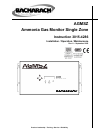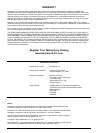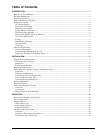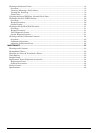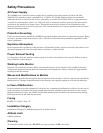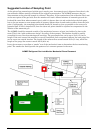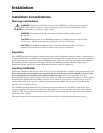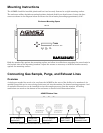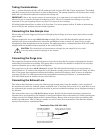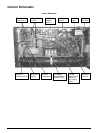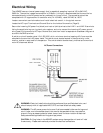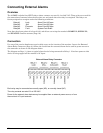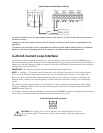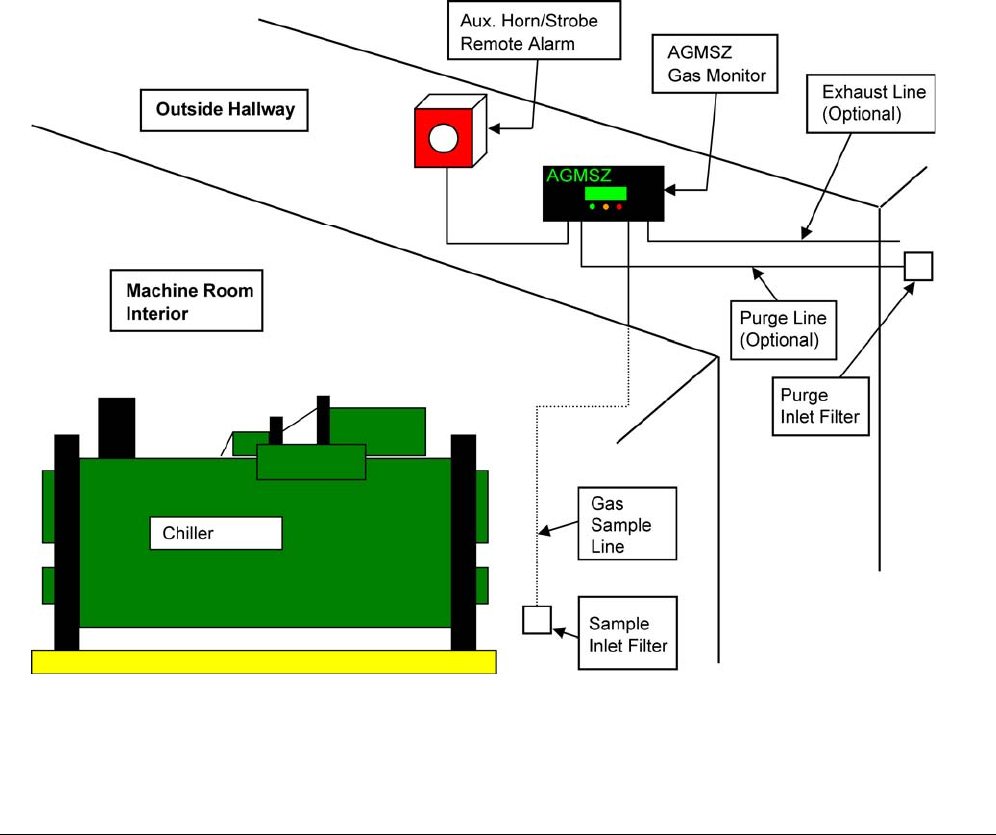
4 Instruction 3015-4286
Suggested Location of Sampling Point
At the point of an ammonia gas leak the gas is nearly pure. As ammonia gas is dispersed into the air, the
gas molecules diffuse causing a dilution of the original concentration. The AGMSZ measures the gas
concentration at the point the sample is collected. Therefore, if the termination of the collection line is not
at the exact point of the gas leak, then the monitor will read a diluted mixture of ammonia gas and air.
It should be noted that when ammonia gas is cold it is heaver than air and settles below the leak point,
but as the gas warms to room temperature it becomes lighter than air and tends to collect above the leak
point. Consequently, the sampling point should ideally be located as close as possible to the source of a
potential leak. If this is impractical, then the alarm set points should be adjusted to compensate for the
dilution of the ammonia gas.
The AGMSZ should be mounted outside of the mechanical room or at least just inside of a door to the
room. This is the “split architecture design” for safety of the operator. The monitor should be readily
accessible for easy visual monitoring and servicing. The gas-sample line can be up to 50 ft (15.2 m) in
length. If the area around the monitor is not well ventilated, then an optional exhaust line and purge line
can be run to an outside location. The length of the exhaust line cannot exceed 50 ft (15.2 m), while the
length of the purge line cannot exceed 100 ft (30.4 m).
It may be necessary to perform a “smoke” test of the mechanical room to determine the best monitoring
point. The smoke test would provide the pattern of air currents present in the room.
AGMSZ Refrigerant Gas Leak Monitor Mechanical Room Placement



